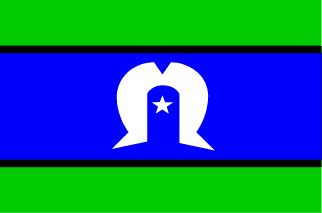A report in The Advertiser (Friday 25 September) has highlighted the safety of children on the Anangu Pitjantjatjara Yankunytjatjara (APY) Lands.
The story includes reports from child protection workers on the Lands, indicating that, ‘every one of the 700 students on the APY Lands has been exposed to some form of sex abuse’.
According to this same article, Families SA has not confirmed this number but the Child and Adolescent Mental Health unit has apparently briefed community teachers about the extent of the problem, indicating that there were ‘more than 300 open child-sex abuse cases’. The article cites instances of children accessing pornography from the internet on school computers, and the sexualised behaviour of young children.
Sue Tilley from the Uniting Communities’ Paper Tracker Project says, ‘While the number of children affected by child abuse may not have been substantiated, the safety of children across the APY Lands remains a critical issue, and requires ongoing monitoring and an integrated and sustained response from support services. There is clearly a need for a well-coordinated strategy that involves service providers and Anangu organisations and leaders.
‘It is worrying that after all the effort and investment in the Children on Anangu Pitjantjatjara Yankunytjatjara (APY) Lands (Mullighan) Commission of Inquiry – which was set up to examine the incidence of sexual abuse of children on the APY Lands – the ongoing problem of child abuse remains.
‘The Paper Tracker Project is concerned about the extent to which there is ongoing monitoring of the implementation of the recommendations of the Mullighan Inquiry, and whether their implementation has been embedded and sustained or merely treated as a “tick-box” exercise for reporting purposes.
‘In looking at the ongoing monitoring of government’s commitments, the fifth and final report in response to the Mullighan Inquiry states that:
“The Government’s Taskforce (set up to coordinate and monitor the implementation of Government’s commitments to the Inquiry’s recommendations) identified the APY Lands Steering Committee as an appropriate forum for the maintenance of strong interagency collaboration to guide initiatives relating to the safety of children on the APY Lands … The APY Lands Steering Committee will have a lead role in service planning and coordination … (Final report, November 2013, page 10)”.’
‘Following the final report in late 2013, and in response to a question from the Paper Tracker Project, the Department of Education and Child Development stated that the APY Lands Steering Committee (tasked with the ongoing monitoring of the implementation of the Inquiry’s recommendations), had only met twice during 2014 and that the issue of child protection was not an item on the agenda. This begs the question as to who has overall oversight of the safety of children on the Lands and the extent to which the Mullighan Inquiry recommendations have been sustained.
‘The non-delivery on other commitments arising from the Mullighan Inquiry has led to similar concerns being raised. For example, in October 2013, the South Australian Government commenced a review of its APY child protection protocols in response to the Mullighan Commission of Inquiry. These protocols provide a ‘framework’ for the way government agencies and non-government organisations respond to child protection notifications. In response to frequent requests for information by The Paper Tracker, the Department for Education and Child Development has repeatedly indicated that the findings of the Review will be made available ‘in the near future’. It is now almost two years since this Review was set up and no findings or outcomes have been provided.
‘Clearly, in light of all the effort that has gone into addressing child abuse, we need to do something differently in the face of the increasing number of children who are caught up in unsafe situations. In collaboration with Anangu leaders and organisations, it is critical that alternative approaches to keeping children safe are explored.’






